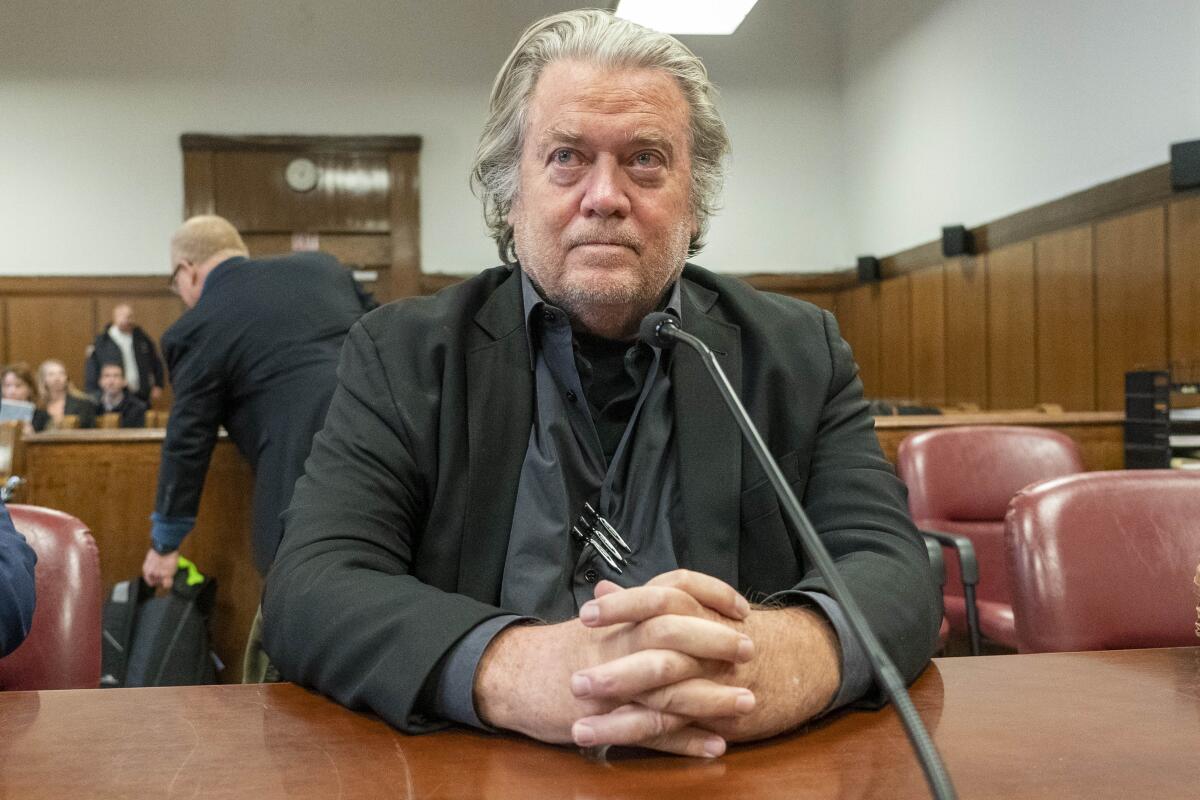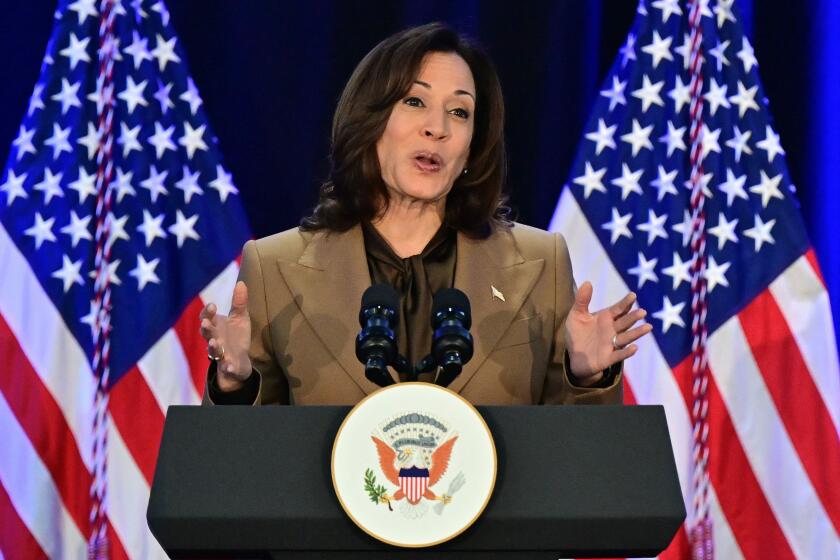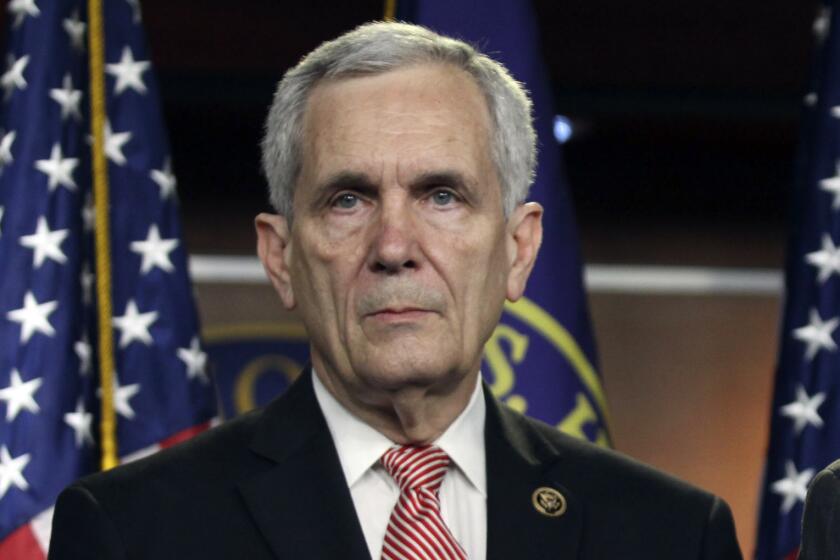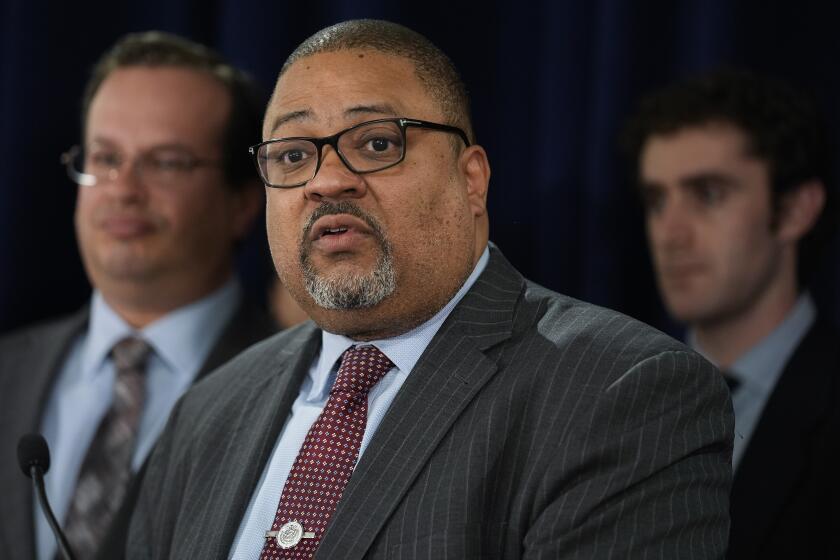Appeals court refuses to delay Bannon’s prison sentence

A federal appeals court panel on Thursday rejected longtime Donald Trump ally Stephen K. Bannon’s bid to stay out of prison while he fights his conviction for defying a subpoena from the House committee that investigated the U.S. Capitol attack.
Bannon is supposed to report to prison by July 1 to begin serving his four-month sentence for contempt of Congress.
U.S. District Judge Carl Nichols, who was nominated to the bench by former President Trump, earlier this month granted prosecutors’ request to send Bannon to prison after a three-judge panel of the U.S. Court of Appeals for the D.C. Circuit upheld his conviction.
Bannon’s lawyers asked the appeals court to allow him to remain free while he continues to fight the conviction all the way up to the Supreme Court, if necessary. But in a 2-1 vote, the D.C. Circuit panel said Bannon’s case “does not warrant a departure from the general rule” that defendants begin serving their sentence after conviction.
Judges Cornelia Pillard, who was nominated by former President Obama, and Bradley Garcia, a nominee of President Biden, voted to send Bannon to prison. Judge Justin Walker, who was nominated by Trump, dissented, writing that he should not have to serve time before the Supreme Court decides whether to take up his case.
Bannon is expected to ask the Supreme Court to stave off his prison sentence. His attorneys didn’t immediately respond to an email seeking comment Thursday.
He was convicted nearly two years ago of two counts of contempt of Congress: one for refusing to sit for a deposition with the House Jan. 6 committee and the other for refusing to provide documents related to his involvement in efforts by Trump, a Republican, to overturn his 2020 presidential election loss to Biden, a Democrat.
Bannon’s lawyer at trial argued that the former White House advisor didn’t ignore the subpoena but was still engaged in good-faith negotiations with the congressional committee when he was charged. The defense has said Bannon had been relying on the advice on his attorney, who believed that Bannon couldn’t testify or produce documents because Trump had invoked executive privilege.
Lawyers for Bannon say the case raises serious legal questions that will likely need to be resolved by the Supreme Court but he will have already finished his prison sentence by the time the case gets there.
In court papers, Bannon’s lawyers also argued that there is a “strong public interest” in allowing him to remain free in the run-up to the 2024 election because Bannon is an advisor to Trump’s campaign.
Bannon’s lawyers said the Justice Department, in trying to imprison him now, is “giving an appearance that the government is trying to prevent Mr. Bannon from fully assisting with the campaign and speaking out on important issues, and also ensuring the government exacts its pound of flesh before the possible end of the Biden Administration.”
Prosecutors said in court papers that Bannon’s “role in political discourse” is irrelevant.
“Bannon also cannot reconcile his claim for special treatment with the bedrock principle of equal justice under the law,” prosecutors wrote. “Even-handed application of the bail statute requires Bannon’s continued detention.”
Another former Trump aide, trade advisor Peter Navarro, is serving a four-month prison sentence for contempt of Congress. Navarro, too, has said he couldn’t cooperate with the committee because Trump had invoked executive privilege. The judge barred him from making that argument at trial, however, finding that he didn’t show Trump had invoked it.
The House Jan. 6 committee’s final report concluded that Trump criminally engaged in a “multi-part conspiracy” to overturn the lawful results of the 2020 election and failed to act to stop his supporters from attacking the Capitol, following an extraordinary 18-month investigation into the former president and the violent insurrection.
Richer writes for the Associated Press.
More to Read
Get the L.A. Times Politics newsletter
Deeply reported insights into legislation, politics and policy from Sacramento, Washington and beyond. In your inbox three times per week.
You may occasionally receive promotional content from the Los Angeles Times.




